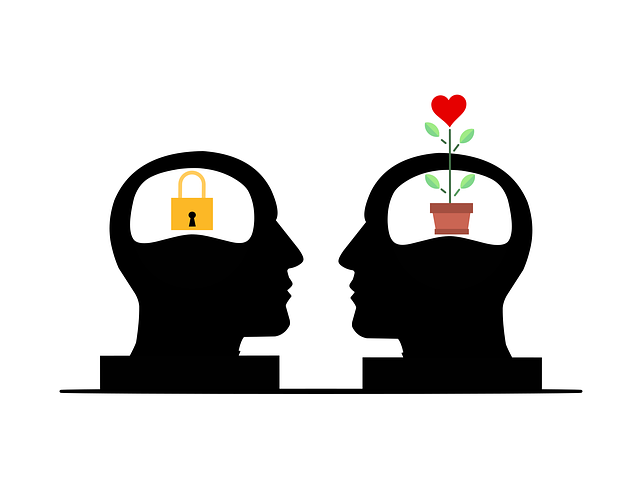Centennial Adolescent and Teen Therapy (CATT) is a leading organization addressing adolescent stress through tailored workshops. They combine educational content, group discussions, and self-awareness exercises to empower teens with coping strategies. These sessions foster social skills, promote mindfulness, and enhance resilience, aiming for long-term mental wellness. CATT's approach includes measuring success via follow-up assessments, ensuring interventions lead to lasting positive changes in teens' lives, particularly relevant in stressful environments like healthcare.
“Unwind the tension, reconnect with calm—this is the promise of stress management workshops tailored for adolescents. In today’s fast-paced world, recognizing and addressing teen stress is paramount, as it can significantly impact their overall wellbeing and development. This article guides you through a structured approach, from understanding adolescent stress and its effects to designing engaging workshops, fostering supportive environments, and measuring long-term success. Discover how Centennial Adolescent and Teen Therapy leads the way in empowering young minds to thrive.”
- Understanding Adolescent Stress and Its Impact
- Designing Effective Stress Management Workshops
- Creating a Supportive Environment for Teens
- Measuring Success and Long-Term Wellbeing
Understanding Adolescent Stress and Its Impact

Adolescence is a pivotal period marked by significant physical, emotional, and cognitive changes. However, this phase can also be characterized by heightened stress levels as young individuals navigate school pressures, peer relationships, identity formation, and family dynamics. Understanding the unique stressors affecting adolescents is crucial for organizations like Centennial Adolescent and Teen Therapy to provide effective support.
The impact of chronic stress during adolescence can be profound, potentially leading to long-term mental health issues. Social Skills Training and Emotional Intelligence programs are valuable tools in helping teens manage stress by teaching them coping mechanisms and enhancing their ability to navigate social interactions. Moreover, advocacy for improved Mental Health Policy Analysis and Advocacy is essential to ensure that resources and services catering to adolescent well-being are readily accessible and effectively implemented.
Designing Effective Stress Management Workshops

Effective stress management workshops for adolescents and teens require a thoughtful design approach to cater to their unique needs. At Centennial Adolescent and Teen Therapy, we emphasize interactive and engaging sessions that foster self-awareness and provide practical tools for coping with daily pressures. Workshops should include a mix of educational presentations, group discussions, and hands-on mental wellness journaling exercises to encourage active participation. Facilitators should guide participants through various self-awareness exercises, helping them identify stress triggers and develop personalized strategies for stress reduction.
Incorporating diverse methods such as mindfulness techniques, relaxation exercises, and cognitive reframing can significantly enhance the workshop’s impact. These stress reduction methods not only teach teens effective coping mechanisms but also empower them to take charge of their mental wellness. Through dynamic activities and a supportive environment, workshops can equip adolescents with the skills needed to navigate stressful situations healthily and build resilience for a happier, more balanced life.
Creating a Supportive Environment for Teens

Creating a supportive environment is key when organizing stress management workshops for teens. At Centennial Adolescent and Teen Therapy, we understand that crafting a safe and encouraging space is essential to help young individuals open up and engage in the process of learning effective coping strategies. This involves creating an atmosphere where participants feel comfortable sharing their experiences without fear of judgment. Our facilitators employ techniques such as active listening, empathy, and positive reinforcement to build trust and foster open dialogue.
Incorporating interactive activities and group discussions allows for a sense of community, enabling teens to relate to one another. This is particularly valuable in teaching social skills training, where role-playing scenarios can help them practice assertiveness, communication, and conflict resolution. Moreover, integrating self-awareness exercises into the workshops encourages introspection, helping teens identify their triggers and develop personalized strategies for managing stress.
Measuring Success and Long-Term Wellbeing

Measuring success and long-term wellbeing are integral aspects of any stress management workshop, especially when catering to adolescents and teens through Centennial Adolescent and Teen Therapy. The impact of such programs extends beyond immediate post-workshop feedback, aiming to instill lasting coping skills and resilience.
Through regular check-ins and follow-up assessments, the organization can gauge the effectiveness of its interventions. This includes tracking improvements in mental health indicators, such as reduced anxiety and depression symptoms, enhanced self-awareness, and better stress management techniques. The long-term goal is to empower young individuals with tools to navigate future challenges, thereby preventing burnout and promoting overall wellbeing, especially within the demanding healthcare sector where Burnout Prevention Strategies for Healthcare Providers are increasingly relevant.
Stress management workshops, designed with a deep understanding of adolescent stress and its impact, can be powerful tools in fostering long-term mental wellbeing. By creating supportive environments tailored to teens’ unique needs, as highlighted by Centennial Adolescent and Teen Therapy, these workshops become transformative spaces. Through effective design, engagement in these sessions enables young individuals to develop resilience and coping mechanisms that resonate with their lives. Measuring success goes beyond immediate outcomes; it involves tracking the positive shifts in teens’ mental health and overall life satisfaction over time.










